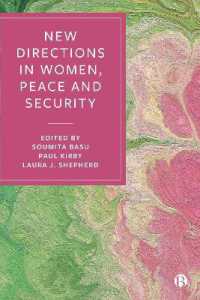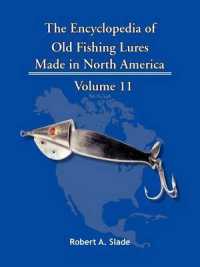- ホーム
- > 洋書
- > 英文書
- > Religion / Ethics
Full Description
Humans are unique in their ability to reflect on themselves. Recently a number of scholars have pointed out that human self-conceptions have a history. Ideas of human nature in the West have always been shaped by the interplay of philosophy, theology, science, and technology. The fast pace of developments in the latter two spheres (neuroscience, genetics, artificial intelligence, biomedical engineering) call for fresh reflections on what it means, now, to be human, and for theological and ethical judgments on how we might shape our own destiny in the future. The leading scholars in this book offer fresh contributions to the lively quest for an account of ourselves that does justice to current developments in theology, science, technology, and philosophy.
Contents
Preface; Introduction, Nancey Murphy; Part 1 The Limits of Religion, the Limits of Science; Chapter 1 Homo Religiosus A Theological Proposal for a Scientific and Pluralistic Age, Christopher C. Knight; Chapter 2 Religious Symbolism Engaging the Limits of Human Identification, F. LeRon Shults; Chapter 3 Fundamentalism in Science, Theology, and the Academy, George F. R. Ellis; Part 2 The Emergence of the Distinctively Human; Chapter 4 Reductionism and Emergence A Critical Perspective, Nancey Murphy; Chapter 5 Nonreductive Human Uniqueness Immaterial,Human and Artificial Intelligence A Theological Response, Noreen Herzfeld; Chapter 7 The Emergence of Morality, James W. Haag; Part 3 The Future of Human Identity; Chapter 8 What Does It Mean to Be Human? Genetics and Human Identity, Martinez Hewlett; Chapter 9 Distributed Identity, Wesley J. Wildman; Chapter 10 Without a Horse, Noah Efron; Chapter 11 From Human to Posthuman Theology and Technology, Brent Waters; Chapter 12 Can We Enhance the Imago Dei?, Ted Peters;







